Subjects
Phonics
As children start their journey through Trinity, they begin to learn phonics in creative ways. In our two and three-year-old provision, children take part in sound walks, playful activities and learn to ‘tune in’ to sounds around them. Children then move into Reception and Key Stage 1 where phonics is taught daily. We use a range of approaches and practical activities, which are supported by the Read, Write, Inc (RWI) Phonics programme.
Through phonics teaching, children will:
- Learn 44 sounds and the corresponding letters/letter groups using simple picture prompts
- Learn to write and form the letters/letter groups which represent the 44 sounds with the help of fun phrases
- Learn to read and write words using sound blending
- Use high frequency sight words everyday e.g. I, like, because, he, she, my
We combine quality phonics teaching with a range of texts and the promotion of reading for pleasure. At Trinity we believe that this provides our pupils with the skills they need to have a successful start to their lives as readers.
Useful Phonics Websites for Parents:
http://www.oxfordowl.co.uk/question/index/3
information and guidance for parents/carers
http://www.phonicsplay.co.uk/ParentsMenu.htm
a selection of interactive games for all phonic phases.
http://www.letters-and-sounds.com/
printable resources for each of the Letters and Sounds
https://www.topmarks.co.uk/Interactive.aspx?cat=40
interactive games for all phonic phases.
https://www.bbc.co.uk/bitesize/topics/zcqqtfr
videos to support understanding of phonics at home.
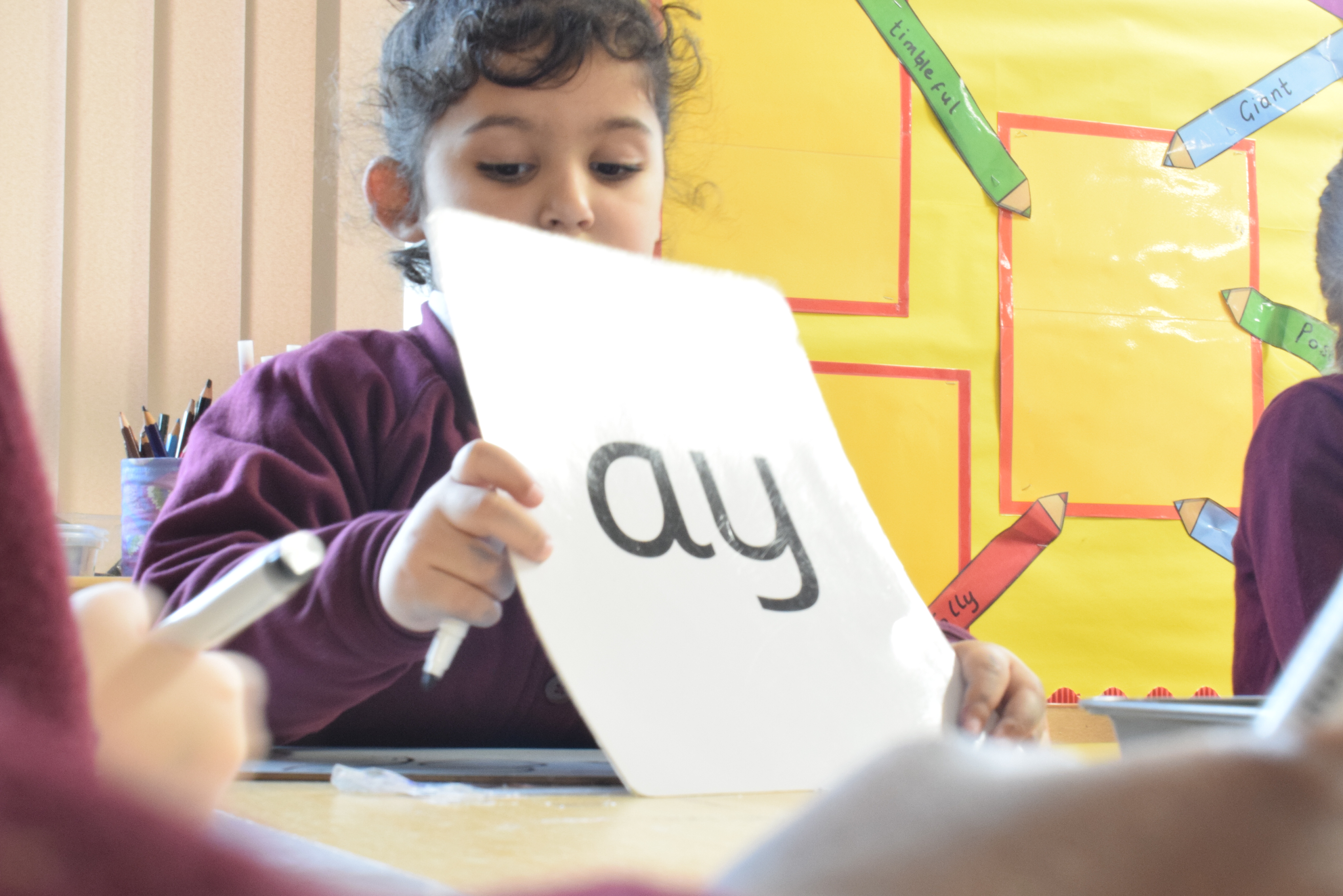
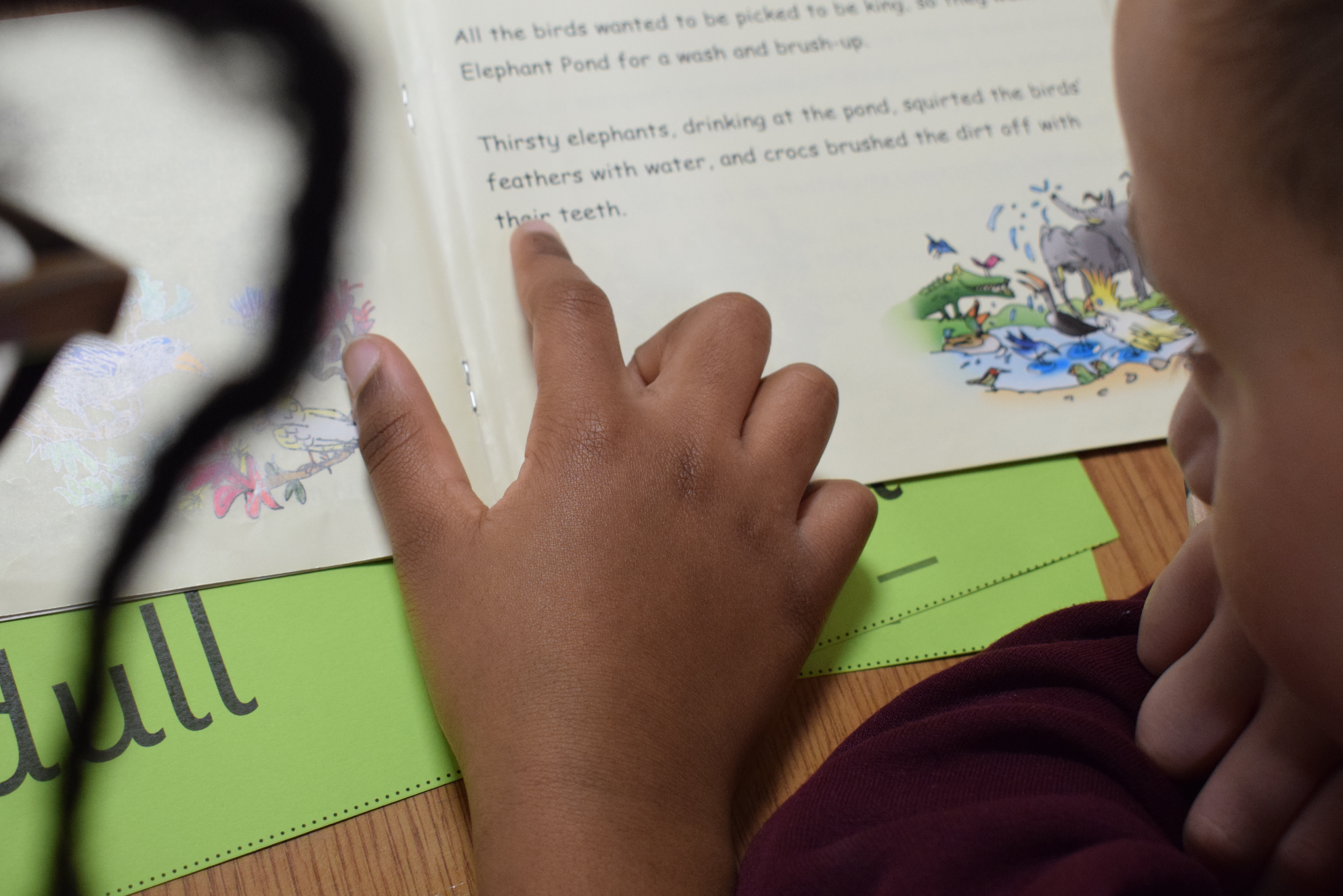
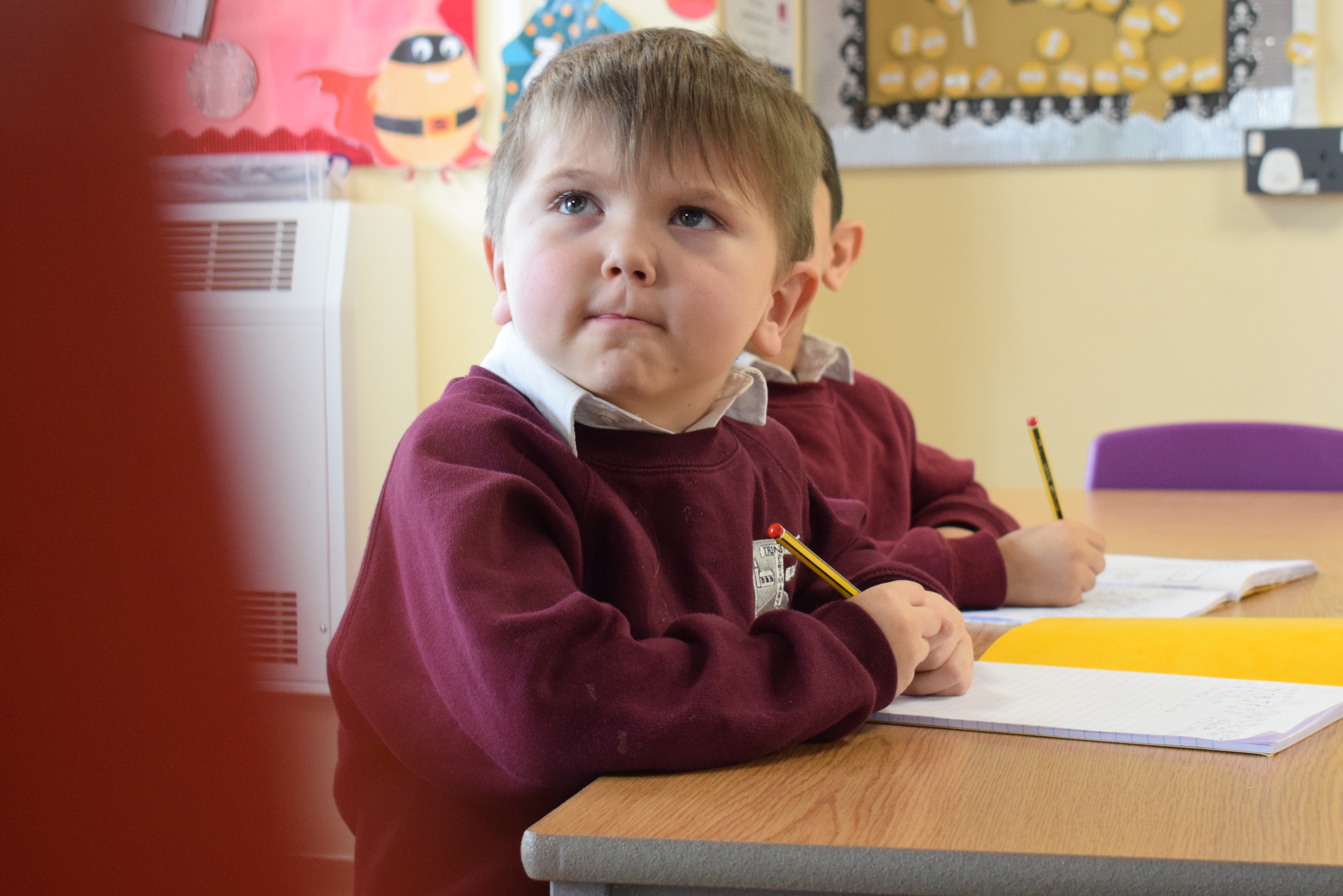
Reading
At Trinity Primary Academy reading lies at the heart of the curriculum and we are dedicated to enabling our pupils to become lifelong readers. We believe reading is an essential life skill which is the key for academic success. Through delivering an enriched Literacy curriculum, children at Trinity experience a variety of inspiring teaching activities that utilise creative stories and diverse, thought-provoking texts.
Children at Trinity have access to a wide range of varied and engaging texts that have been carefully chosen to reflect their interests. Our school library is filled with books from published schemes including Oxford Owl, Active Learn and Treetops, ensuring that children are given texts that carefully match their phonic and reading ability. Organised by colour-banding, the books allow the children to acquire reading skills and fluency in a clear and systematic way. Our tailored reading scheme ensures children are offered high-quality books that reflect our community and inspire children to enjoy reading.
At Trinity, we aim to inspire a love of reading that goes beyond the classroom, and strive to work with our parents and carers to help our children build their reading confidence at home. We ask that parents and carers hear their children read wherever possible, asking questions about the text to aid their children’s understanding beyond the literal meaning of the words.


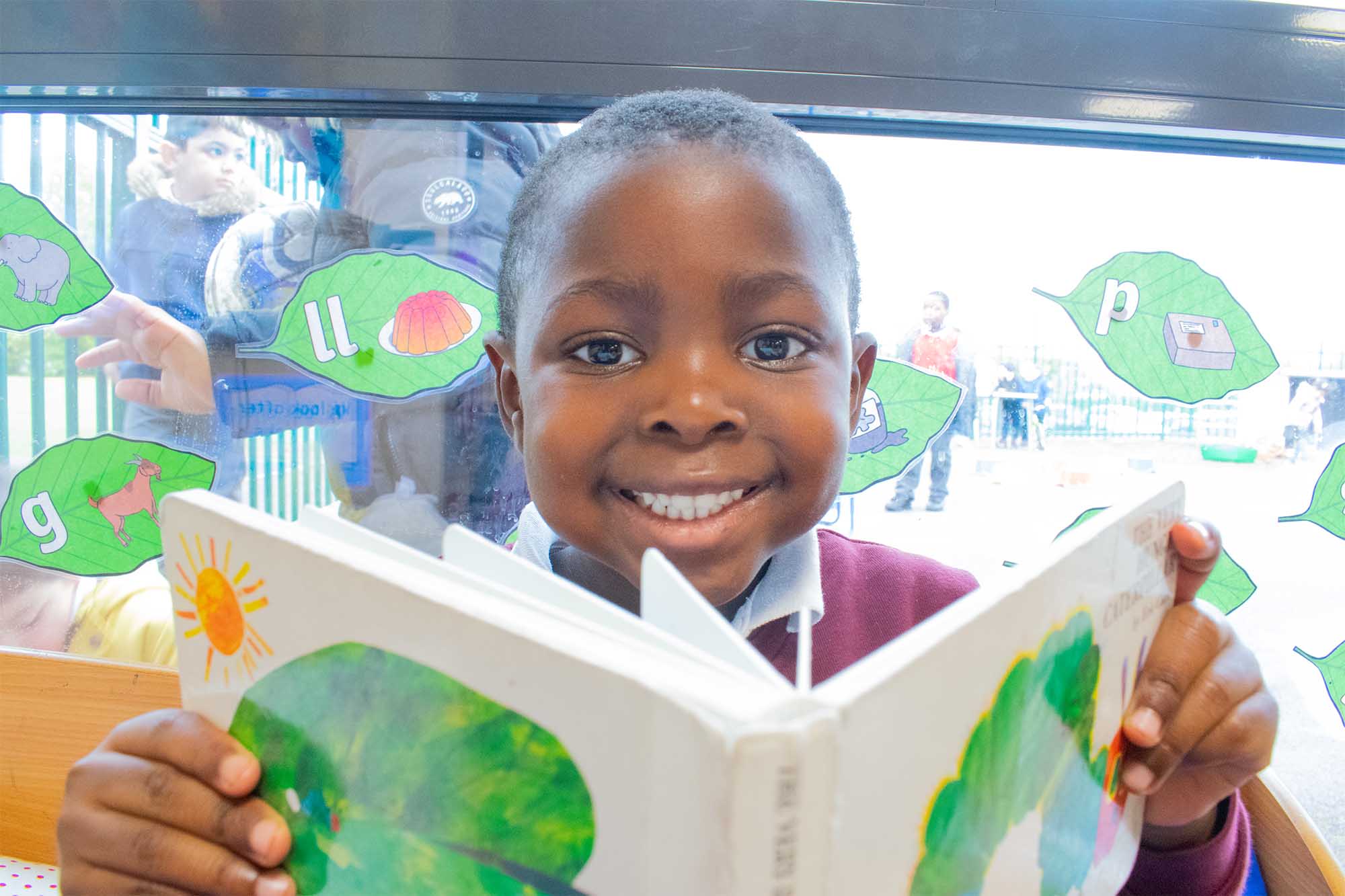
Writing
Writing is a crucial part of our curriculum at Trinity Primary Academy. Through enriching and inspiring opportunities we aim for our children to have developed a thirst for writing and be able to express their thoughts and ideas clearly and creatively. Children use a wide range of ambitious vocabulary while learning to edit and improve their own writing and confidently use the essential skills of grammar, punctuation and spelling independently. Writing is taught through a range of inspiring and engaging stimuli, which includes books, film clips, music videos, visitors and real-life experiences, providing our children with purposeful and engaging opportunities to write at length for a range of purposes and audiences. Children are encouraged to use and transfer their age related skills across all areas of the curriculum and write freely and creatively to produce extended pieces of writing.
At Trinity, the children take pride in their work and have a fluent, cursive handwriting style through the use of the ‘Letterjoin’ scheme. Children begin to use pre-cursive handwriting in Key Stage 1 before learning to join letters and develop a fluent and legible handwriting style throughout Key Stage 2.
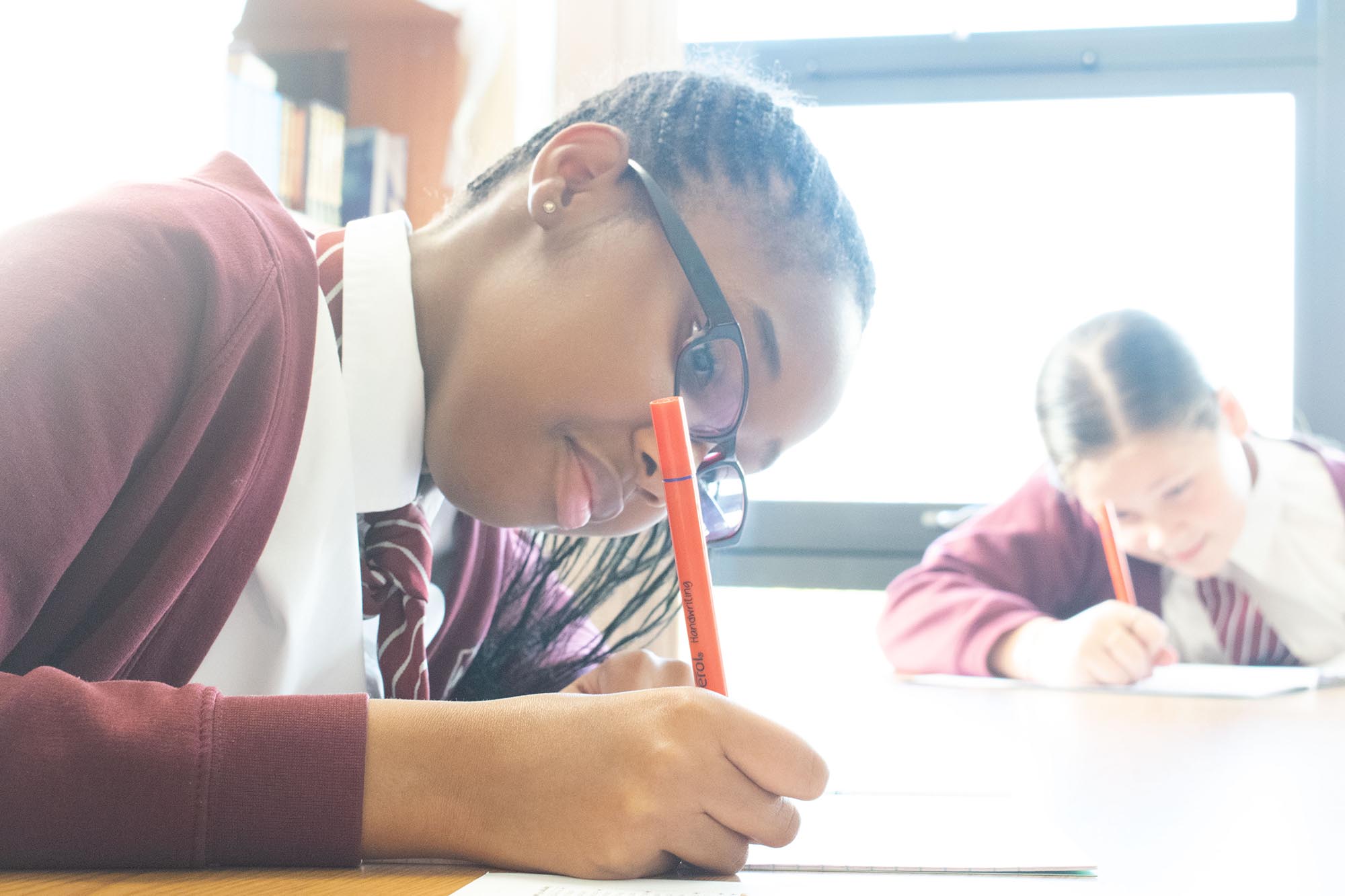

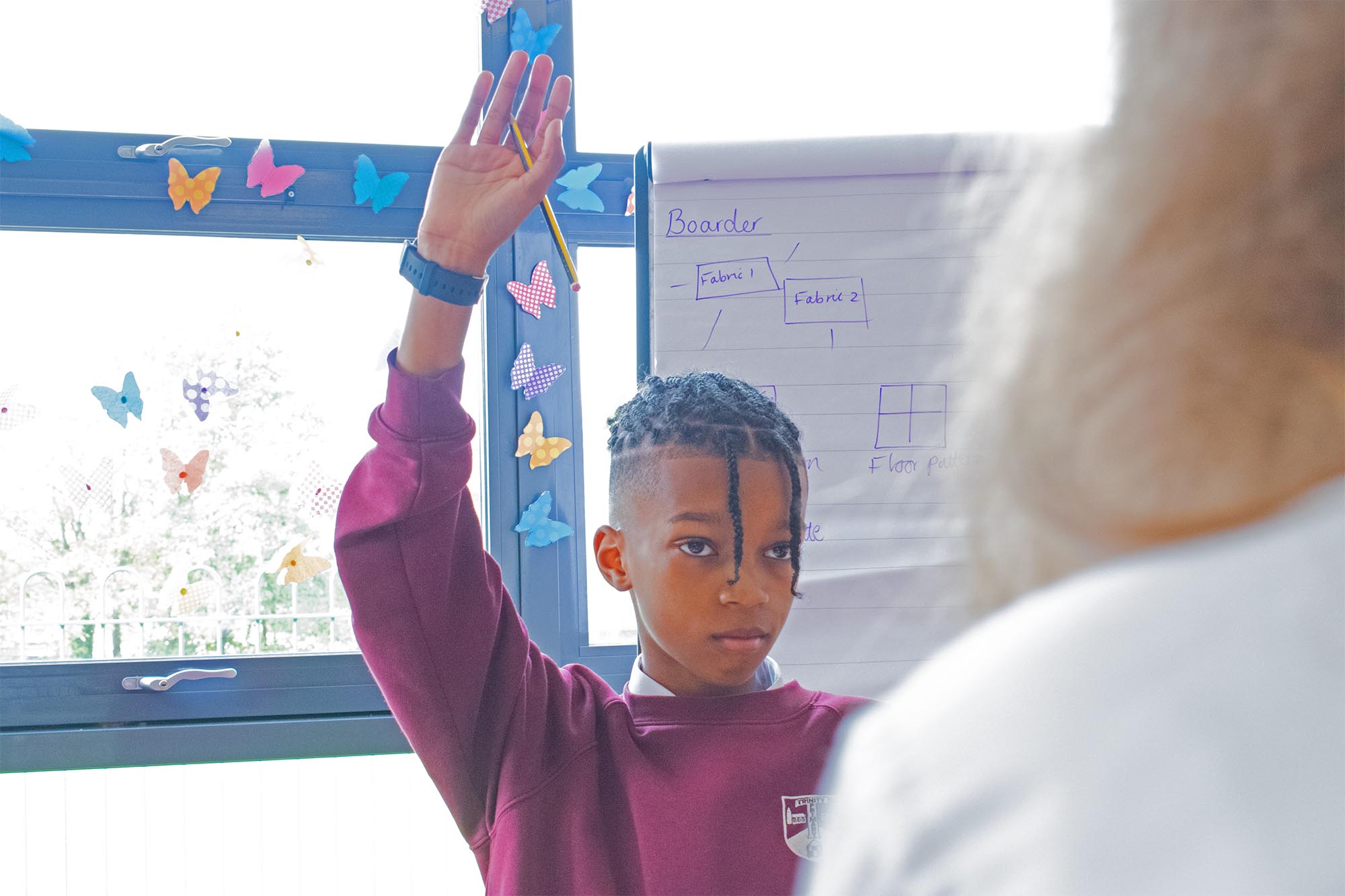
Numeracy
At Trinity, we believe that all children should be encouraged to achieve and persevere in all areas of the curriculum. At the centre of our approach, is the belief that all children have the potential to succeed – they should have access to the same curriculum content which is adapted to make it inclusive for all and suit that individual’s needs. Our maths provision provides the children with the opportunities to build a solid foundation for understanding number, reasoning and problem solving. Through delivering an engaging, quality maths curriculum, we want the children to develop the confidence and resilience to take risks and tackle problems independently.
It is designed to:
- Support all pupils in becoming confident learners.
- Provide children with the key mathematics skills and understanding.
- Develop resilient mathematicians who understand that maths is a part of every-day life and the world we live in.
- Provide the children with a range of reasoning and problem solving opportunities to develop their mental maths and reasoning skills.
- Provide children with real-life contexts to help build children’s understanding of skills and to help them recognise when to use certain methods when faced with problems.
Our curriculum covers the following topics over the year:
- Number and Place Value (including counting)
- The four operations (addition, subtraction, multiplication and division – in years 5 and 6, these skills are taught weekly through a focused arithmetic lesson to ensure gaps are being closed and misconceptions re being addressed)
- Fractions, Decimals and Percentages
- Geometry
- Measure
- Statistics.
To support the teaching and learning of Maths, we use a range of resources to create a curriculum that is inclusive and specific to each pupil’s learning needs. This is done through the use of manipulatives in the classroom and supporting documents (Calculation Policy, Vocabulary Document, Medium Term Plans) provided for staff to aid them in teaching a progressive, systematic and inclusive curriculum.
Challenge is embedded through opportunities for pupils to demonstrate their understanding through reasoning and problem solving. In addition to this, Trinity recognises the importance of using the correct mathematical terminology to embed and deepen the children’s understanding. The vocabulary needed is explicitly taught and reinforced – children are encouraged to use it in their answers, particularly when reasoning and problem solving.

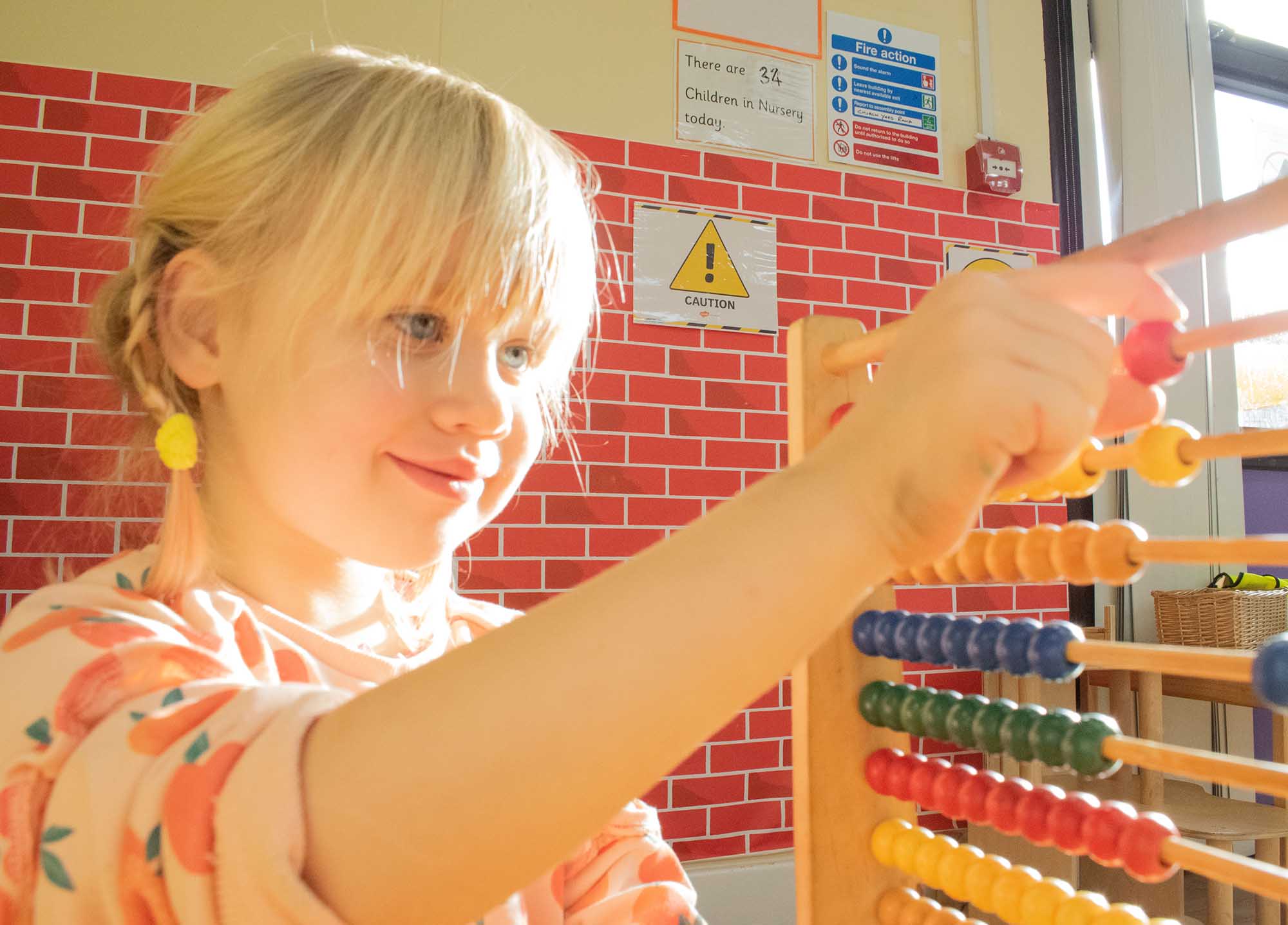

Religious Education
Our RE curriculum supports us in celebrating our unique, diverse, multi-cultural school. Through our planned RE programme we aim to enable children to explore their own personal experiences and teach them about a variety of religious faiths and their practices. Children are encouraged to form their own beliefs and develop respect for others. We actively promote positive attitudes and the feelings of kindness, love, tolerance, respect and understanding. Each year group is taught RE on a weekly basis using a planned programme of work. Our curriculum is designed to suit the age, maturity and needs of all pupils.
A daily Act of Collective Worship is an integral part of our school curriculum. Our planned themes for assemblies and worship cover areas of personal, social, spiritual, moral and cultural development. Stories and examples are drawn from a range of religions and cultural backgrounds, within a broadly Christian approach.
Our programme for worship includes opportunities for individual reflection, class worship and Key Stage assemblies, including occasions to celebrate achievements.
Throughout the year, the whole school come together on occasions at special services and celebrations held at Trinity Church with our Reverend Richard Merrick.
Right of Withdrawal
Parents have a legal right to withdraw their child from all or some aspects of Collective Worship and Religious Education. We hope that our teaching programme and programme of Worship, whilst broadly Christian is sensitive to the beliefs and values of all faiths, but should any parent wish to exercise their right of withdrawal, they are asked to contact the Executive Headteacher.
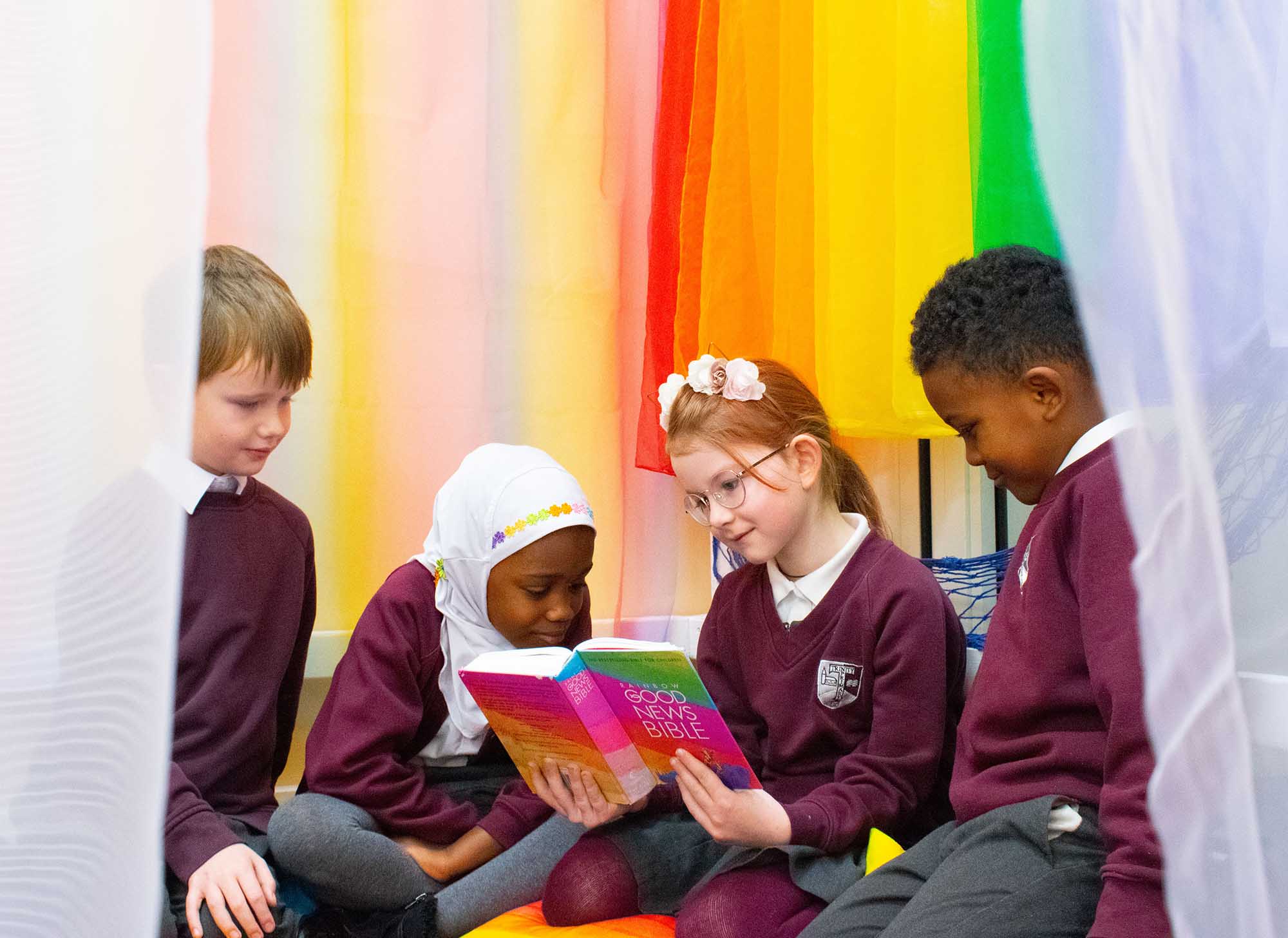
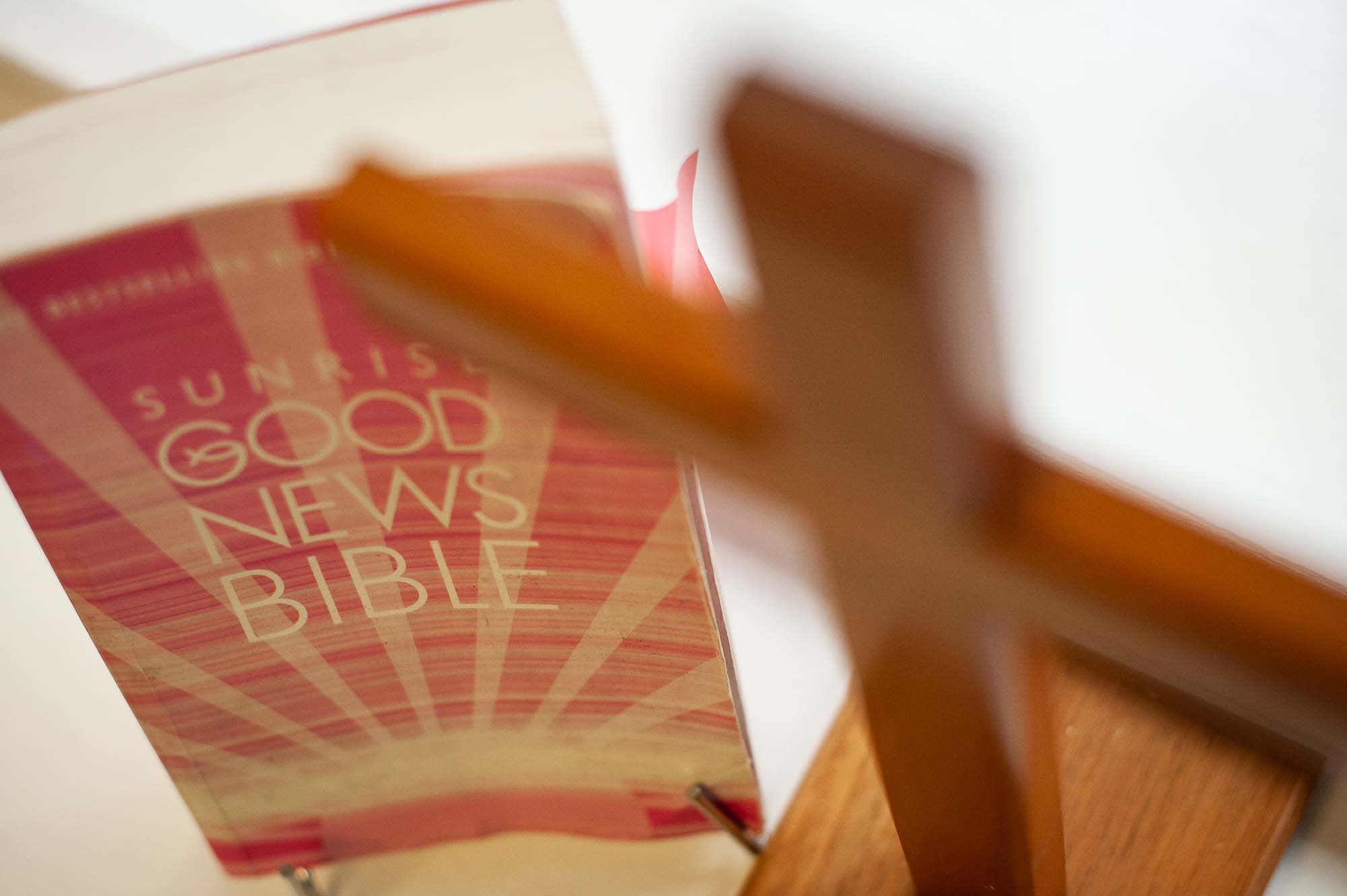

PSHE and RSE
At Trinity Church of England Primary Academy, we value PSHE as one way to support children’s development and to enable them to understand and respect who they as well as others are in the world around them. We include the statutory Relationships and Health Education within our whole-school PSHE Programme.
We use the Jigsaw scheme of work, the mindful approach to PSHE, as our chosen teaching and learning programme and tailor it to our children’s needs.
The mapping document: Jigsaw 3-11 and statutory Relationships and Health Education, shows exactly how Jigsaw and therefore our school, meets the statutory Relationships and Health Education requirements.
Jigsaw is a comprehensive scheme of work that covers PSHE, SMSC, British Values and Relationships, and Sex Education, using a mindful approach to teaching thus allowing children to develop their emotional awareness, concentration and focus.
This comprehensive programme gives children relevant learning experiences to help them navigate their world and to develop positive relationships with themselves and others.
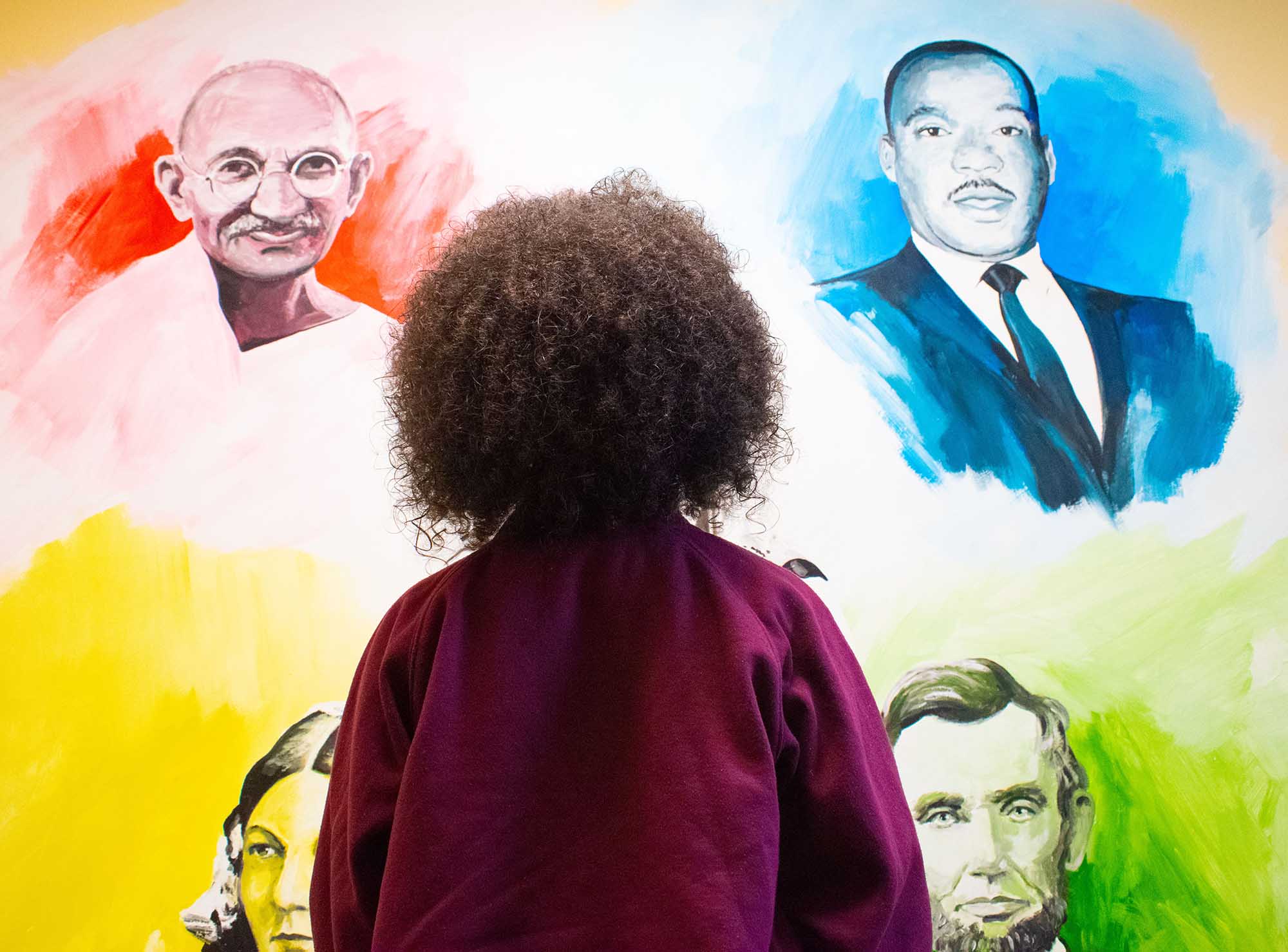
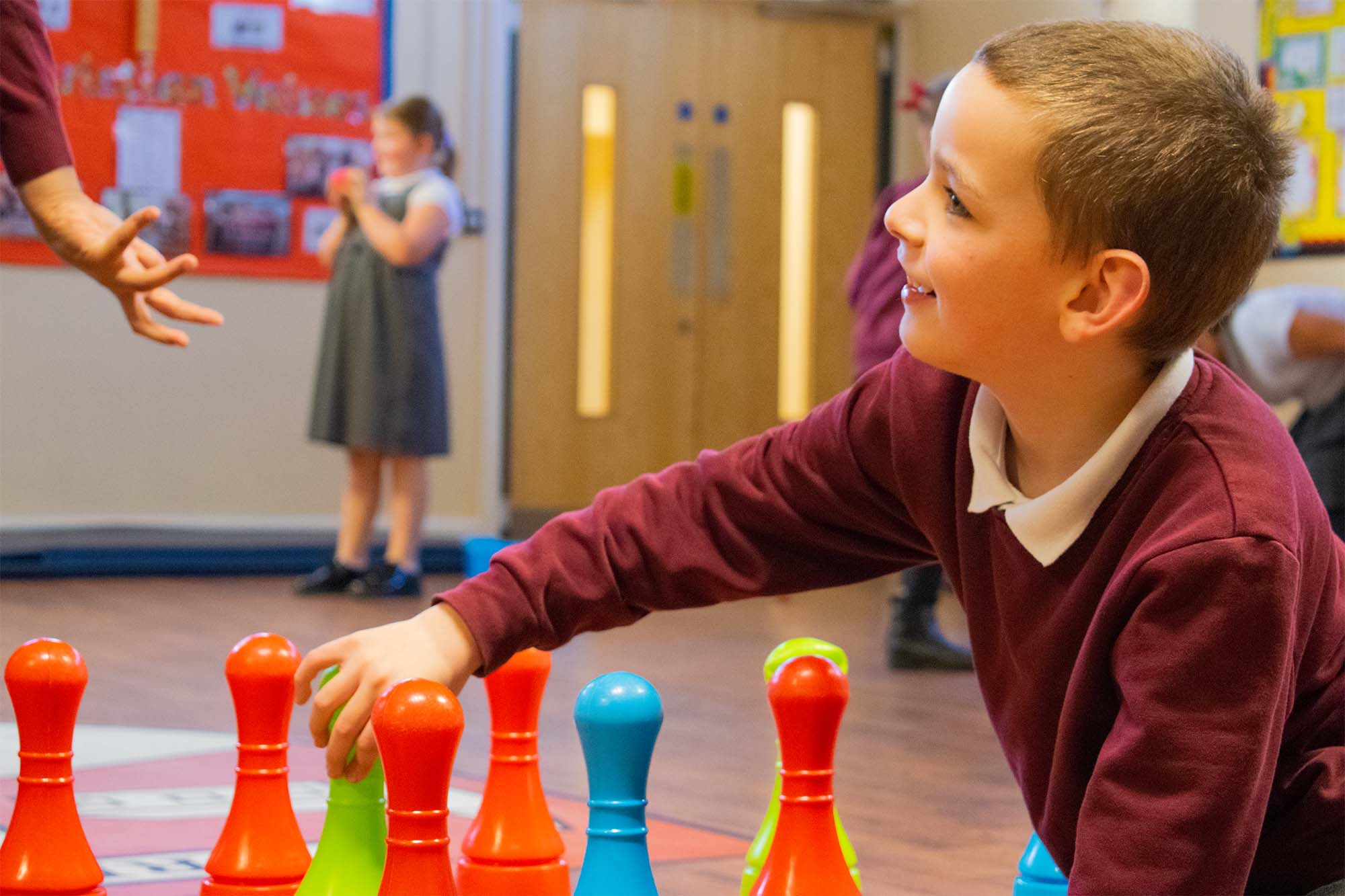
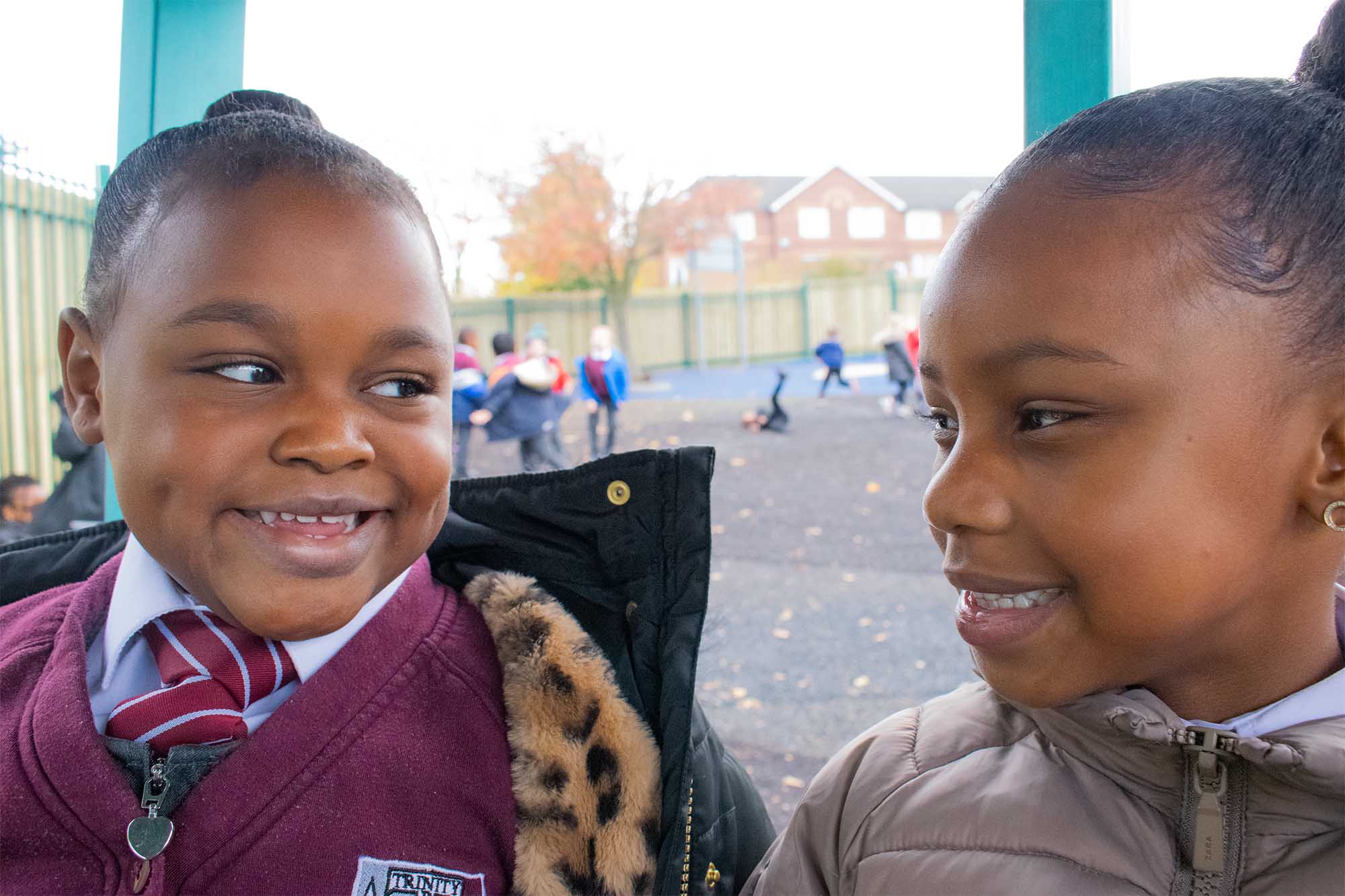
Science
At Trinity C of E Academy, we recognise Science as a subject that incites awe, curiosity and discovery. We believe that a rich and balanced science curriculum will equip our children with a strong understanding of the world around them, by building the scientific knowledge and skills of enquiry needed to become competent scientists. Through quality-first teaching and rich curriculum experiences, we aim to inspire in our children a lifelong love of science and a lasting excitement and respect for the natural world.
Our science curriculum provides a comprehensive progression of scientific knowledge and skills in the disciplines of Biology, Chemistry and Physics. These skills are taught through engaging topics in which children investigate scientific phenomena in real-world contexts. Five key skills of enquiry are embedded into the planning of sequences of learning at Trinity: Fair Testing, Sorting and Classifying, Observing over Time, Research and Pattern Seeking. Each lesson is based around an enquiry-based question, and includes one or more of the five enquiry skills, to ensure that scientific investigation is a prominent seam running throughout the unit.
In our weekly science lessons at Trinity, we strive for our children to:
- learn through first-hand, practical experiences,
- explore different types of science enquiry that help them to answer scientific questions about the world around them,
- develop a rich scientific vocabulary,
- collaborate with their peers, and develop their individual skills of enquiry,
- be equipped with the knowledge to understand and question the impact of science in today’s world and in the future,
- be inspired to develop their skills into the next stage of their development and life experiences.
Geography
At Trinity, we provide a Geography curriculum that inspires a curiosity and fascination of the world and its people, which encourages our pupils to have a deeper understanding of the world and their place in it. We strive to deepen their knowledge of diverse places, people, resources and natural and human environments, together with an understanding of the Earth’s key physical and human processes. Our broad curriculum is designed to develop knowledge and skills that are progressive, as well as transferable, throughout our pupils’ time at Trinity and into their further education and beyond.
At Trinity, it is important that children develop the skills of a geographer by fully immersing them in all areas of the subject. We ensure teachers provide engaging and immersive experiences:
- exploration of a wide range of places around the world to compare and contrast and deepen understanding of human and physical geography.
- use a range of high quality resources such as atlases, digital mapping and online sources.
- develop lifelong skills such as; map reading, compass skills, problem solving and analysing data
- school trips and fieldwork are provided to give first hand experiences and opportunities to apply geographical skills, which enhance children’s understanding of the world beyond their locality.
![DSC_0354[1]](https://trinityceprimary.co.uk/wp-content/uploads/2023/09/DSC_03541.jpg)


History
At Trinity, we provide our children with a progressive and broad History curriculum, which enables them to develop a rich and coherent subject knowledge of British and world History. We aim for all pupils to develop a sense of belonging to their environment and the wider world, seeing the relevance of their learning to the past, present and future. We encourage children to think critically, ask perceptive questions and lead enquiries through exploration and research in order to gain clear narratives and connections across the periods they study. Our curriculum is progressive throughout the whole school, in order to deepen and challenge our pupils. Our pupils will learn lessons from history to influence the decisions they make in their lives in the future, enabling them to become responsible citizens.
In History at our school, we endeavour to teach pupils to understand the complexity of people’s lives, including those of the present, the process of change, the diversity of societies and beliefs, whilst celebrating these differences. Through the teaching of Black History, we further embed this understanding in learning about significant black individuals and historical events that have shaped Britain and the world we live in today. We aim to offer a curriculum which is reflective of our multi-cultural school and ensure topics and key figures studied celebrate the contributions from diverse aspects of society.
We strive for all of our pupils to develop a passion for history, therefore creative approaches to the curriculum are planned for:
- investigation and analysis of primary and secondary sources, through access to an extensive resource bank of high quality artefacts
- cross curricular opportunities are maximised, enabling progression of learning and skills amongst other subjects.
- educational visits are planned to provide first-hand experiences for pupils to support and develop their learning as historians, and enhance their historical experiences.
- visits to the local community and from local significant individuals allow our pupils to be inspired by and be proud of their local heritage.
- history is promoted through the celebration of anniversaries, festivals, and events throughout the year, which are linked with other areas of the curriculum
Computing
At Trinity, our Computing curriculum enables pupils to develop digital skills and creativity. The curriculum is designed to ensure that pupils become competent in using technology in a safe and creative way. Computing is taught weekly, using different forms of technology, such as laptops and iPads. Our planned Computing curriculum focuses on a progression of skills in:
- digital literacy
- computer science
- information technology
- online safety
These strands are regularly revisited to ensure that learning is embedded and skills are successfully developed by the time pupils leave school. As part of the Computing curriculum, children learn to develop their ideas through Computing, for example in writing and presenting, as well as exploring art and design using multimedia and programming.
At Trinity, we give children access to a wide range of good quality resources and provide cross curricular opportunities for children to apply their computing knowledge and skills. Online safety is taught throughout the year, using the PSHE curriculum to support this, and online safety procedures are communicated with all staff and parents.




MFL – Spanish
Our school serves a diverse, multi-cultural community and we believe that this should be celebrated throughout the curriculum. At Trinity we understand that it is important for pupils to explore and learn a language that interests and excites them. Learning a foreign language opens a gateway to the world around us, providing pupils with different social and cultural experiences.
Spanish is taught weekly by a specialist Spanish teacher. All children take part in practical activities that build their knowledge of the language and apply these to focused tasks. Our Spanish curriculum is carefully planned out across the year to ensure that pupils have opportunities to explore themes that interest them such as greetings, hobbies and commands.
Art
Trinity promotes children’s individuality and creativity and this is seen throughout our Art curriculum. We celebrate culture and diversity by studying artists from all over the world, past and present. Children are taught a range of techniques through a clearly thought out curriculum. We teach children to think critically and develop a greater understanding of Art and Design. This allows pupils to reflect on how art has shaped our history and contributed to culture and art movements.
We believe that Art and Design plays a role in well-being, allowing children to express themselves in a way they may not be able to in other lessons. We aim to build resilience and confidence through the use of an exciting art curriculum.
Our school is immersed in children’s artwork, showcasing the talents and skills of our pupils. Art projects take place throughout the year involving children from our two-year-old provision through to Year 6.
Music & Dance
Curriculum Music
Co-curricular Music
Beyond curriculum lessons, pupils have extensive opportunities to develop their musical interests through subsidised peripatetic instrument tuition, after-school clubs and singing opportunities. KS2 pupils can learn a wide range of instruments and take part in weekly choir sessions, while children across KS1 and KS2 can take part in keyboard and ukulele after school clubs. Weekly Songs of Praise assemblies and a thriving KS2 choir further promote singing, confidence and enjoyment, ensuring pupils can make meaningful progress in music beyond lesson time.
Musical Events and Performances
Performance is central to musical life at Trinity. All pupils, from Early Years to Year 6, take part in regular performances including services, nativities, assemblies, productions and leavers’ events, with parents warmly invited to attend. Pupils receiving instrumental tuition and choir members perform frequently in school and at external venues, often through collaborative events with partner schools and professional organisations. These rich performance opportunities build confidence, ensemble skills and a lifelong appreciation of music, firmly embedding music at the heart of the school community.
School Music Development Plan
Music Intent, Implementation & Impact






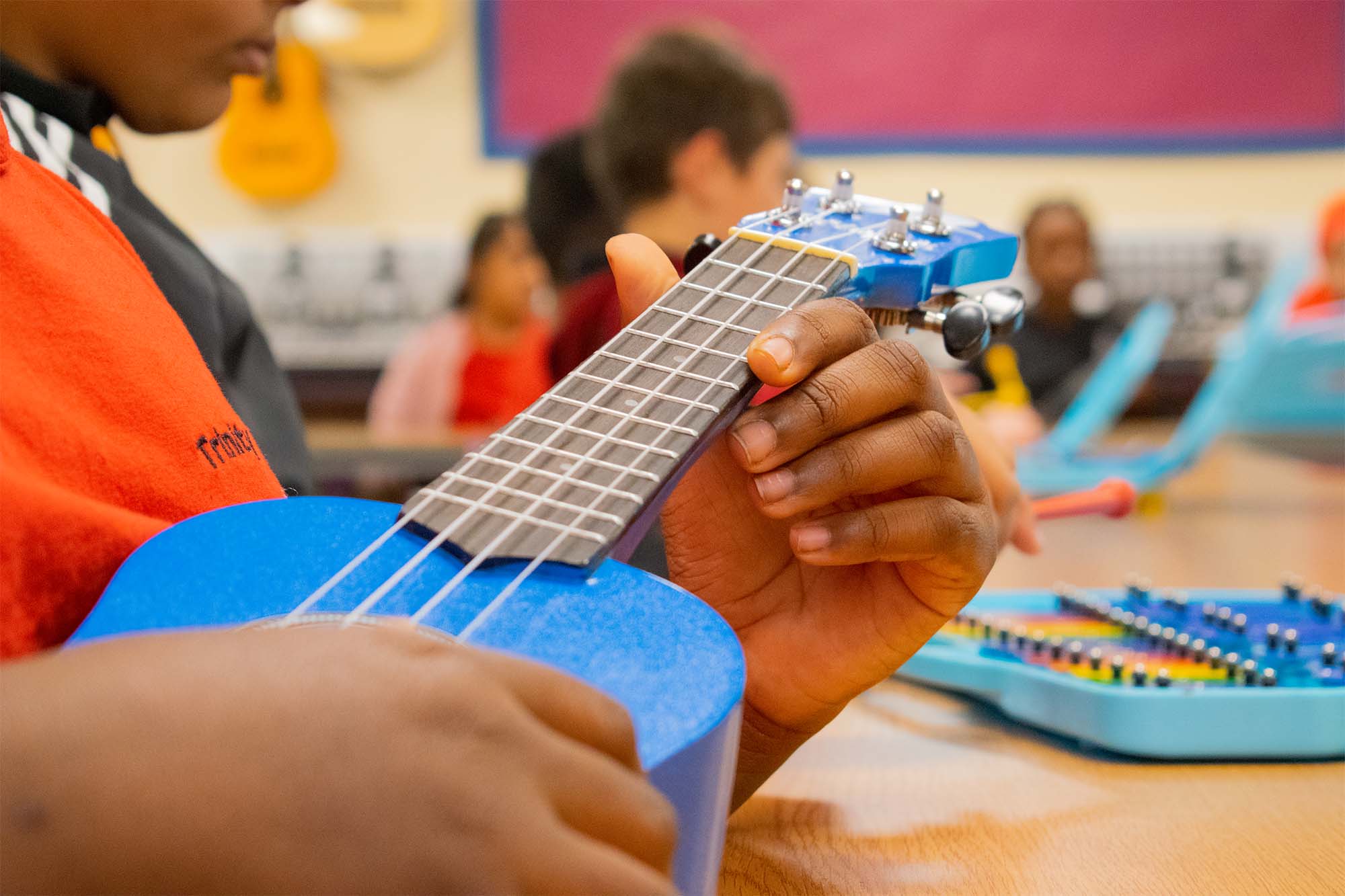


Design & Technology
At Trinity, our Design and Technology curriculum allows our children to develop their creativity and individuality through designing and making. Our carefully designed curriculum plans for progression in keys skills and knowledge throughout a pupil’s time in school. Lessons are planned using a design, make and evaluate cycle, allowing pupils to develop life-long skills.
We ensure that Design and Technology allows children to apply their knowledge and skills learned in other subjects, particularly Maths, Science and Art. Children’s interests are captured through themed learning, ensuring that links are made across the curriculum. During their time at Trinity, children will develop skills in sewing and textiles, cooking and nutrition and mechanical components. To support our creative curriculum, children are given the opportunity to use a range of tools, equipment and media to complete projects.
PE
At Trinity, we provide an inclusive PE curriculum allowing all pupils to experience a variety of sports and physical activities. We believe that Physical Education promotes self-esteem, confidence and problem solving.
Our PE curriculum provides a range of sporting experiences with every child participating weekly. PE is delivered through sport, outdoor learning, dance, games, gymnastics and swimming (KS2). Pupils develop skills and learning through competitive team and individual sports. Equipment and resources support children from across school, including children with additional needs, allowing them to develop confidence, understanding and motivation.
Our curriculum focuses on:
- agility
- balance
- coordination
- fitness
In addition to our PE curriculum, pupils are encouraged to participate in exercise throughout the day during playtimes, clubs, outdoor learning, lunch provision and special events. We offer a range of extracurricular clubs and team sports such as football, multi-skills and dance.
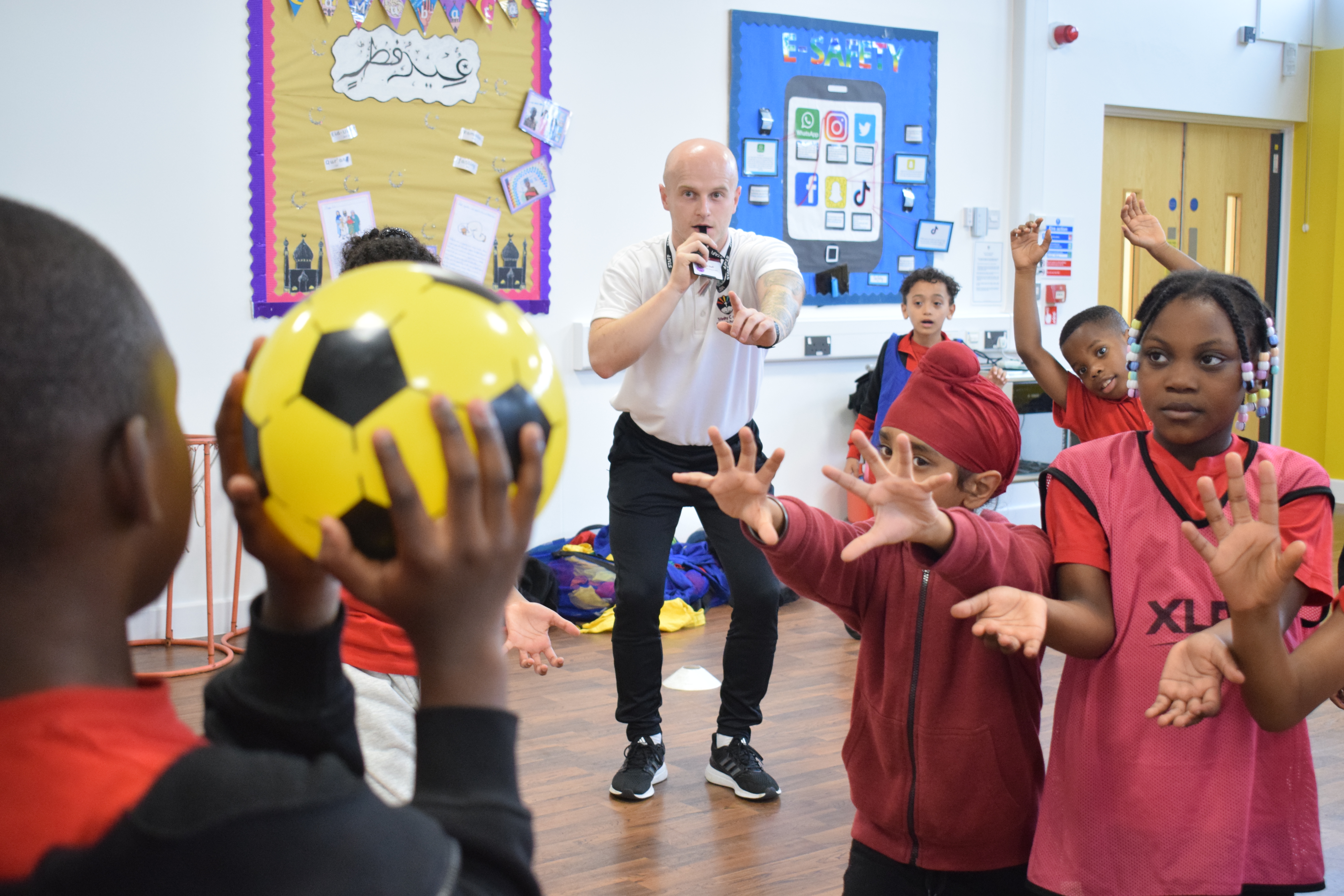
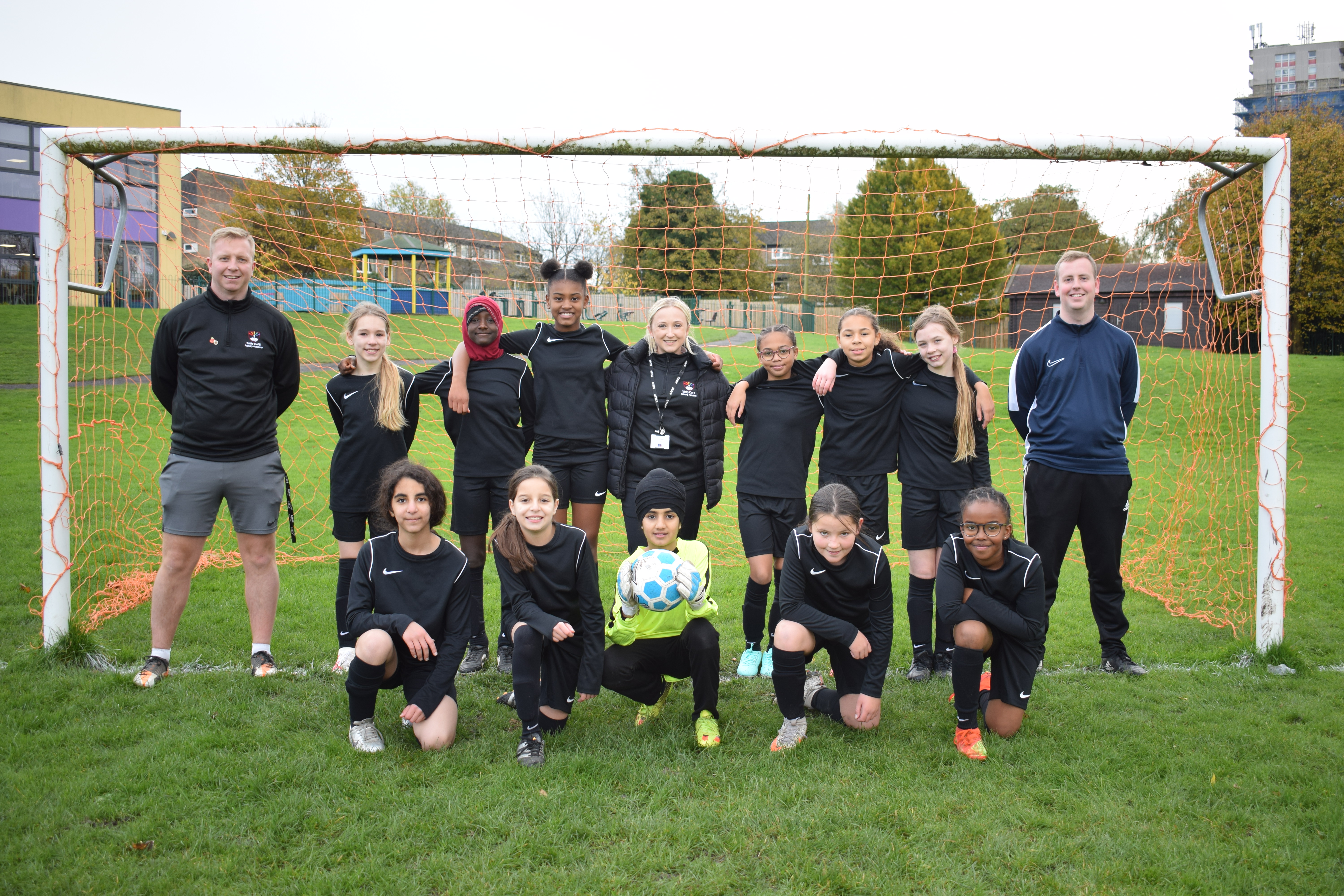
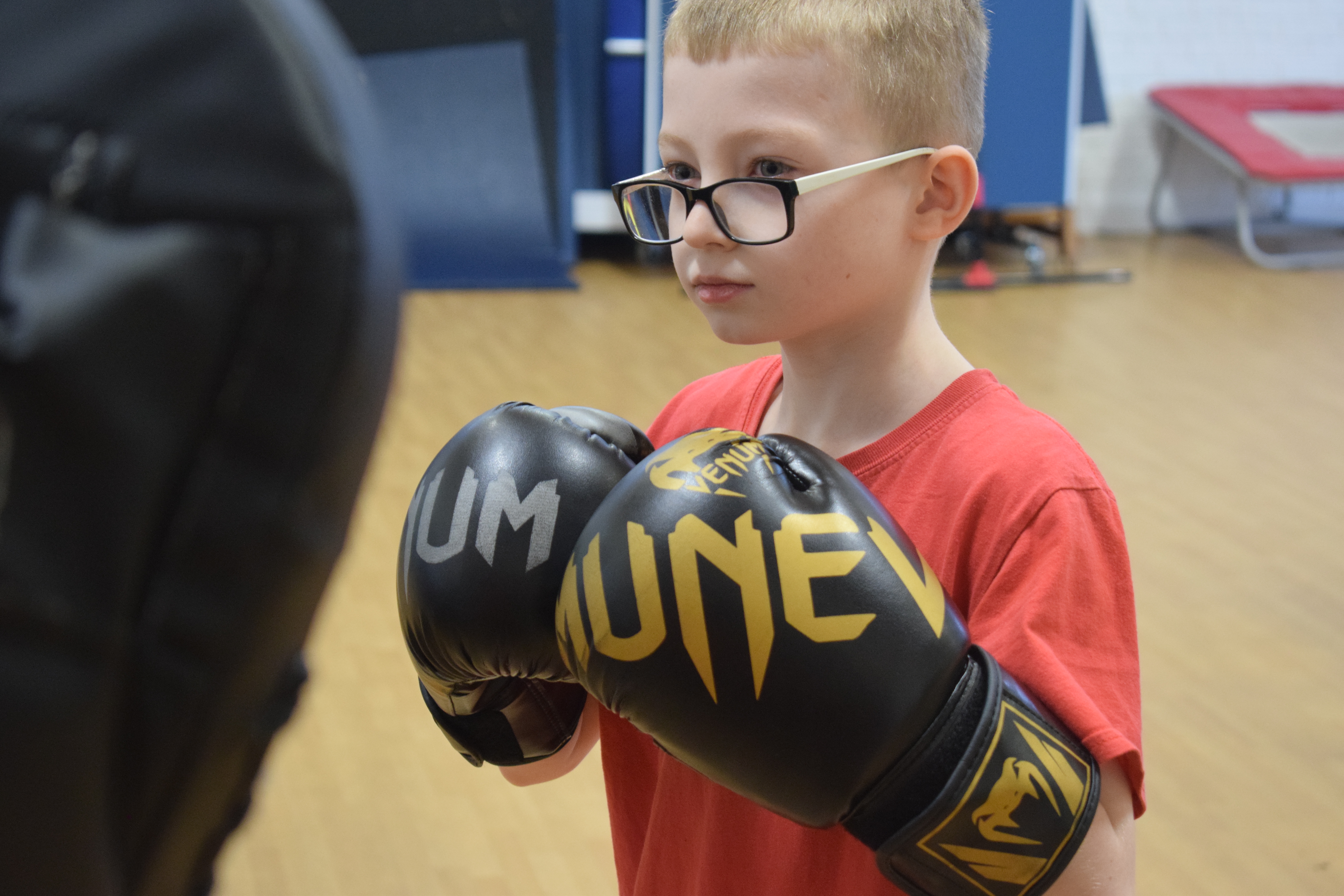
E-Learning Information
At Trinity, we use a wide range of online platforms to extend what is being taught in the classroom. Below are a series of links that will take you to these platforms.
Google Classroom
Google Account
Seesaw
Select Sign In Role – Seesaw
BBC Bitesize
Home – BBC Bitesize
Active Learn
ActiveLearn: Login (activelearnprimary.co.uk)
Education City
Our New EducationCity – Personalised & Distance Learning | EducationCity
The Oak Academy
Oak National Academy (thenational.academy)
Marvellous Me
Home – MarvellousMe
We also have a parent messaging app – Marvellous Me – that enables our staff to send messages to parents and keep them up to date with key events in school. It also enables teachers to award badges to children for their hard work in school, for which parents are also notified.
In EYFS and KS1 children use ‘Seesaw’ to complete Home Learning activities and in KS2 the children use ‘Google Classroom’ to complete their online tasks. In all year groups, children have access to online reading texts through ‘Active Learn’ and they can access games and activities on ‘Education City.’
If you need user names and passwords for any of the platforms, please speak with your child’s teacher and they will be able to access these for you.
